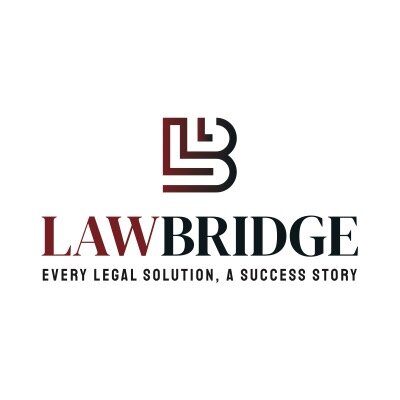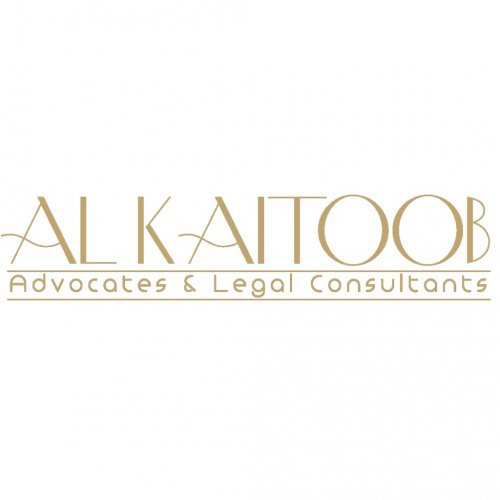Best Creditor Lawyers in Dubai
Share your needs with us, get contacted by law firms.
Free. Takes 2 min.
List of the best lawyers in Dubai, United Arab Emirates
About Creditor Law in Dubai, United Arab Emirates
Creditor law in Dubai, United Arab Emirates, governs the rights and obligations of creditors and debtors. The legal framework, grounded in both civil and Sharia law, aims to ensure fair and transparent financial transactions. In Dubai, as in much of the UAE, the legal system places significant emphasis on contract enforcement and adherence to agreements between parties. This environment creates a robust yet complex landscape for creditors seeking to recover debts, necessitating a thorough understanding of local regulations and judicial processes.
Why You May Need a Lawyer
There are several situations in which you might require legal assistance regarding creditor issues in Dubai:
- Debt Recovery: If you're struggling to recover debts from individuals or businesses, a lawyer can help navigate the legal pathways to reclaiming what's owed.
- Contract Disputes: Legal disputes arising from breached contracts often necessitate expert legal counsel to resolve.
- Credit Agreements: A lawyer can offer invaluable advice when drafting or entering into credit agreements to ensure compliance with local laws.
- Bankruptcy Proceedings: If a debtor files for bankruptcy, understanding your rights and how to proceed legally is crucial.
- Cross-border Transactions: Engaging in international financial transactions may require legal expertise to handle jurisdictional issues effectively.
Local Laws Overview
Creditor-related activities in Dubai are influenced by a combination of UAE Federal Laws, Dubai local regulations, and Sharia principles. The key aspects include:
- Federal Law No. 18 of 1993 (Commercial Transactions Law): Provides a comprehensive framework governing commercial transactions, including the rights of creditors and debt recovery processes.
- Federal Law No. 5 of 1985 (Civil Transactions Law): Outlines obligations and contracts, emphasizing adherence to terms agreed upon by all parties involved.
- Insolvency Law: Introduced to improve insolvency procedures, offering more structured debt restructuring options and safeguards for both debtors and creditors.
- Sharia Law: Plays a role in certain financial disputes, especially involving personal finances or family businesses where Islamic principles are observed.
Frequently Asked Questions
How can a creditor enforce a debt in Dubai?
Creditors can enforce debts through the courts by filing a case against the debtor. Legal proceedings vary based on the nature of the debt and the agreement between the parties.
Is an unpaid debt a criminal offense in Dubai?
Unpaid debt can lead to a civil case; however, if checks are involved that bounce due to insufficient funds, criminal charges may be filed under UAE laws.
What is the process for initiating a bankruptcy procedure in Dubai?
A debtor or creditor may file for bankruptcy if a debtor is unable to meet financial obligations. This process involves court evaluation and possible debt restructuring.
Can a creditor seize the debtor's assets?
Yes, if the court issues an order in favor of the creditor, enforcement actions such as asset seizure may occur to settle debts.
What remedies are available for creditors in contract disputes?
Legal remedies may include specific performance, damages, or contract termination, depending on the contract terms and severity of breach.
Are there alternative dispute resolution options available?
Yes, creditors can opt for mediation or arbitration, which may provide a quicker and less adversarial resolution compared to court proceedings.
Can a creditor still pursue debt recovery if the debtor relocates overseas?
Yes, creditors can seek international legal assistance or use treaties to enforce judgments across borders but may face jurisdictional challenges.
What documents are needed to file a debt recovery case?
Documents generally include proof of debt, such as contracts, invoices, and any correspondence related to the debt agreement.
How long does the debt recovery process take?
The process varies depending on the complexity of the case, the court's workload, and the debtor's response to legal actions.
Can interest be charged on outstanding debts?
Yes, if stipulated in the contract agreement, interest can be charged, but rates must comply with UAE financial regulations.
Additional Resources
For additional information and resources, consider reaching out to:
- Dubai Courts: Provides resources and guidance on legal procedures.
- Dubai Economic Department: Offers support for business and financial transactions.
- Dubai Chamber of Commerce: Offers mediation and arbitration services to resolve commercial disputes.
- UAE Ministry of Justice: Oversees the implementation of federal laws related to creditors and debtors.
Next Steps
If you require legal assistance for creditor matters in Dubai, consider the following steps:
- Consult a Legal Expert: Engage a lawyer with expertise in creditor law within the UAE to evaluate your situation.
- Gather Documentation: Prepare all relevant documents, contracts, and correspondence relating to your case.
- Understand Your Options: Discuss potential legal strategies, including negotiation or litigation, with your lawyer.
- Initiate Legal Proceedings: If necessary, pursue legal action through the appropriate channels under the guidance of your legal counsel.
- Explore Alternative Solutions: Consider mediation or arbitration as potential avenues to resolve disputes without going to court.
Lawzana helps you find the best lawyers and law firms in Dubai through a curated and pre-screened list of qualified legal professionals. Our platform offers rankings and detailed profiles of attorneys and law firms, allowing you to compare based on practice areas, including Creditor, experience, and client feedback.
Each profile includes a description of the firm's areas of practice, client reviews, team members and partners, year of establishment, spoken languages, office locations, contact information, social media presence, and any published articles or resources. Most firms on our platform speak English and are experienced in both local and international legal matters.
Get a quote from top-rated law firms in Dubai, United Arab Emirates — quickly, securely, and without unnecessary hassle.
Disclaimer:
The information provided on this page is for general informational purposes only and does not constitute legal advice. While we strive to ensure the accuracy and relevance of the content, legal information may change over time, and interpretations of the law can vary. You should always consult with a qualified legal professional for advice specific to your situation.
We disclaim all liability for actions taken or not taken based on the content of this page. If you believe any information is incorrect or outdated, please contact us, and we will review and update it where appropriate.

















